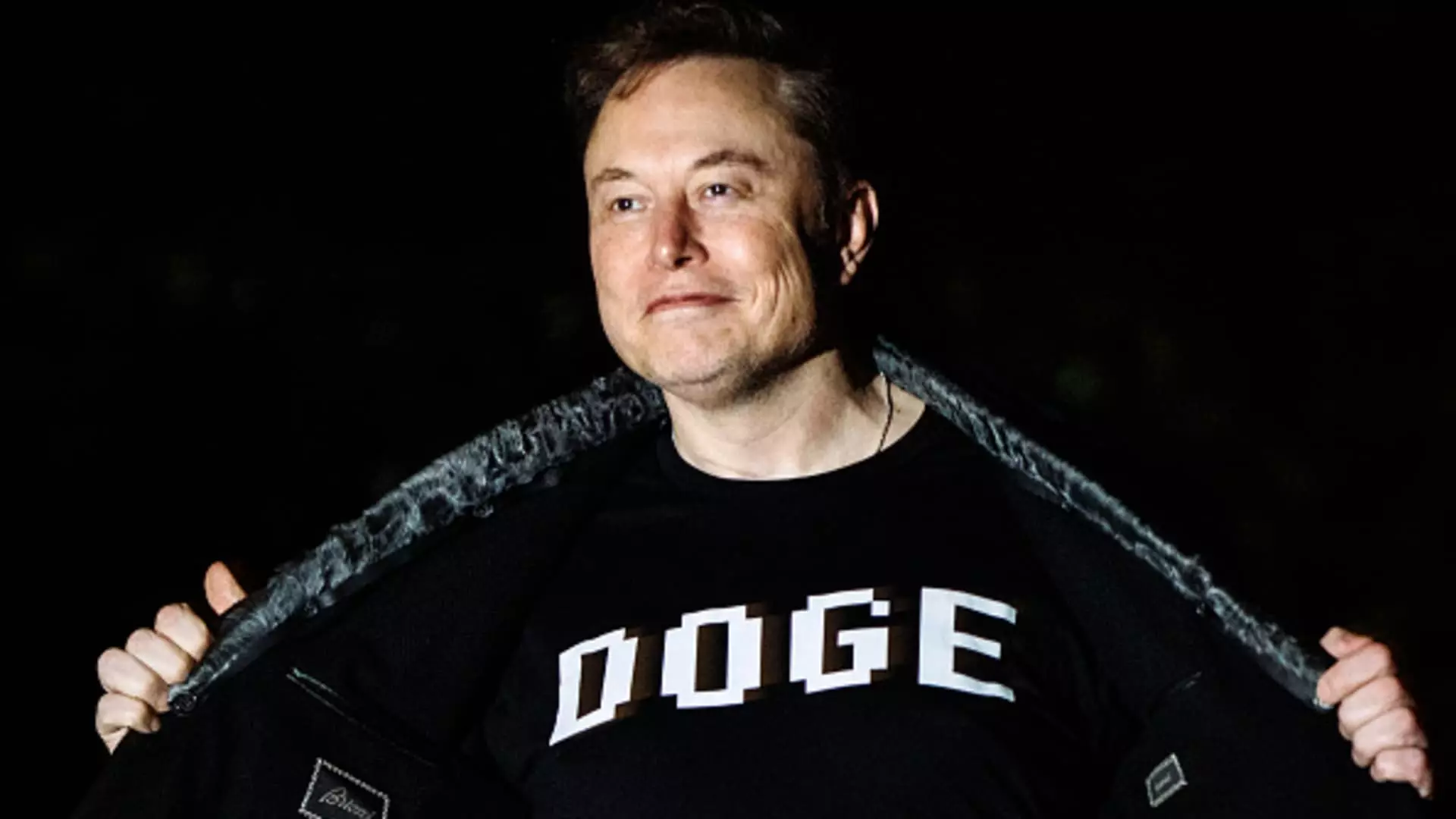Recently, Tesla’s shares saw an upswing fueled by reports that Elon Musk might relinquish his role at the Department of Government Efficiency (DOGE). However, this relief was short-lived, as a strong rebuttal from the White House described the claims as nothing more than “garbage.” Despite previously panicking skittish investors—with shares dipping by over 6% due to disappointing first-quarter vehicle deliveries—Tesla’s stock rebounded by about 5%, demonstrating the volatile nature of electric vehicle (EV) market sentiments.
Elon Musk’s fluctuating involvement in governance has added layers of complexity for Tesla’s performance on the stock market. The vast intelligence turned into misinformation highlights the precariousness that surrounds both Musk and the company. For many investors, the uncertainty about Musk’s leadership may, in fact, be more alarming than the disappointing financial numbers.
The Shadow of Governance on Tesla’s Performance
Musk’s tenuous balance between his corporate responsibilities and political engagements has become a contentious subject. His dual role appears to be counterproductive. Reports indicate that Trump appreciates Musk’s initiatives within DOGE, which have reportedly saved some governmental spending; however, this leadership role has negatively impacted the reputation and stock performance of Tesla. The myriad protests, boycotts, and even violent incidents associated with Tesla products underline the wedge formed in public perception, linking Musk’s political aspirations with the EV brand.
This sentiment is compounded by the ongoing tariffs imposed by the Trump administration, particularly concerning Tesla’s strategically vital suppliers in Mexico and China. When asked about his heavy financial losses, Musk acknowledged that Tesla stock has fallen significantly—stating it has almost halved—adding a layer of discontent regarding the profitability and stability of what many consider a groundbreaking company.
Musk’s Political Engagements: A Double-Edged Sword
Musk’s extensive political engagement, including a recent rally in Wisconsin to support a Republican judicial candidate, underscores the blurred lines between his business and political ambitions. His omnipresence in the political arena has not only drawn ire from various quarters but has also attracted criticism about the undue influence of wealth on democracy. Progressive groups have rallied against Musk, arguing that his financial backing skews judicial outcomes in favor of corporate interests over public good.
Amid this political turmoil, New York City Comptroller Brad Lander suggested that the city should pursue legal action against Tesla on behalf of municipal pension funds, further complicating Musk’s already beleaguered role. Such litigation adds to the growing pressures Musk faces on multiple fronts—shareholders worried about Tesla’s stock, political adversaries aiming to thwart Musk’s influence, and the public’s mounting skepticism regarding his role as both a business owner and political influencer.
The Future of Tesla under Turbulent Skies
As Tesla stands at a crossroads, the interplay between Musk’s responsibilities within DOGE and his CEO role may call for reevaluation. The road ahead is fraught with uncertainty, yet the company retains a formidable legacy in the EV sector. However, if the current trajectory continues, we are left to wonder whether Musk can successfully navigate the increasingly choppy waters of American politics without sacrificing the innovative spirit that propelled Tesla into the spotlight.


Leave a Reply